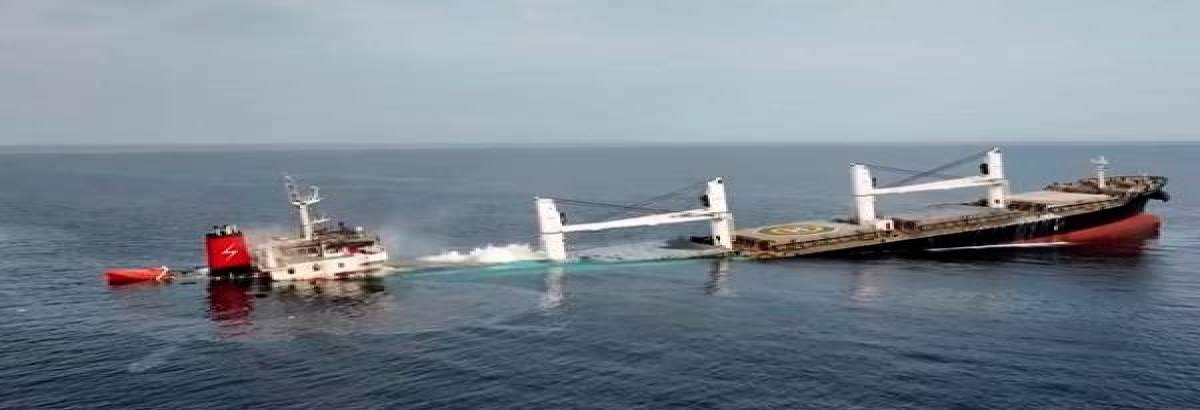1594 Views
Europe's Naval Waterloo: How Yemen's David vs. Goliath Exposed EU's Hollow Power
The European Union’s Aspides operation, launched in February 2024 to safeguard commercial shipping in the Red Sea amid attacks by Yemeni forces in support of Palestine, has exposed serious shortcomings in Europe’s maritime capabilities. These precise and costly attacks on vessels bound for Israel have raised questions about the EU’s authority as a global naval power. The fallout underscores a broader collapse of European naval influence, structural inefficiencies in the EU’s maritime framework, member states’ reluctance to prioritize defense spending, the economic consequences of disrupted trade routes, and the potential for Ansar Allah-inspired tactics to be replicated by other non-state actors.
The Yemeni attacks on two commercial vessels in the Red Sea—a critical artery of global trade—highlight the failure of Operation Aspides to achieve its core objective: securing maritime routes. Despite participation from seven EU member states, including France, Germany, and Italy, and the deployment of four frigates to counter Yemeni missile and drone strikes, deterrence has failed. Since October 2023, Yemeni forces have launched over 100 attacks targeting ships linked to Israel, the U.S., and the U.K. in response to the war in Gaza. The inability to secure the Red Sea has damaged the EU’s credibility as a maritime force, with critics pointing to its limited naval presence and slow response times as key failings. This symbolic collapse reflects Europe’s broader decline in projecting power across strategic waters—a clear signal of its fading status as a dominant maritime actor.
Europe’s sluggish and ineffective response to the Yemeni threat stems from deep-rooted structural and capability weaknesses. Unlike the United States, the EU lacks a sufficient fleet of aircraft carriers and long-range strategic weapons essential for rapid and sustained operations in distant regions. While the U.S. operates 11 aircraft carriers, NATO’s European members have just three operational carriers in total. Operation Aspides has been operating with only a few ships and a single helicopter to cover a vast and dangerous area—with a paltry annual budget of €17 million, far below that of comparable missions.
Moreover, EU military decisions are constrained by bureaucratic consensus-building. The requirement for unanimous approval among all member states under the Common Security and Defence Policy (CSDP) often leads to delayed, overly cautious decisions and diluted outcomes, severely hampering operational effectiveness. This procedural inertia prolongs troop and equipment deployments and prevents swift, decisive action. The absence of strong central command and coordination has fragmented the EU’s forces into a patchwork of national militaries with uneven capabilities—far from a unified and coherent defense force. As a result, Europe’s military potential remains underutilized and misaligned with its collective interests.
Despite grand rhetoric around “strategic autonomy,” EU member states have shown little willingness to truly scale up defense spending or integrate military forces. While EU defense spending rose to €326 billion (1.9% of GDP) in 2024, these increases are scattered and uncoordinated. Many states still fail to allocate sufficient portions of their GDP to defense, leaving their armed forces structurally fragmented and under-equipped. This lack of collective investment and planning has created a stark gap between the EU’s geopolitical ambitions and its actual capabilities. Europe’s continued dependence on the United States for key capabilities such as airlift, aerial refueling, intelligence, and cyber defense reveals a "defense delusion"—a convenient outsourcing of hard responsibilities while maintaining lofty claims on the global stage. This disconnect is steadily relegating Europe to the status of a second-tier actor.
The failure of Operation Aspides has forced shipping companies to reroute vessels around the Cape of Good Hope—adding up to two weeks in transit time and increasing fuel costs by 40%. These delays are contributing to rising prices for consumers and disruptions in supply chains, particularly for Europe, which heavily relies on the Red Sea route for energy and goods from Asia. As the region becomes one of the world’s most dangerous maritime zones, the EU’s inability to project credible naval power is imposing steep economic costs and exposing the price of Europe’s ethical double standards.
Perhaps the most significant strategic consequence of this failure is the growing appeal of Yemen’s defense model to other non-state actors. The Ansar Allah forces have demonstrated that even irregular groups can threaten maritime security using precision missiles, suicide drones, and fast boats. Military analysts view this as an evolution in asymmetric warfare—where small groups armed with modern technology can disrupt established military powers and inflict heavy costs on global navies.
The EU’s failure to confront Yemeni attacks and its exposed maritime weaknesses are symptomatic of much deeper structural issues. This situation highlights not only the EU’s diminished role in military and naval affairs but also its declining influence in foreign policy, economic leverage, and internal legitimacy. The growing gap between Europe’s capabilities and its global ambitions has become a major liability. Persistent dependence on the United States, political inertia, and outdated bureaucratic structures are accelerating the EU’s gradual decline.
Unless the EU undertakes sweeping reforms—overhauling its structures, policy-making, and investment strategy—its decline may accelerate, ultimately leading to the erosion of both unity and global relevance. To avert or at least delay this fate, Europe must urgently strengthen its military capabilities, streamline decision-making processes, and most importantly, cultivate the political will to act decisively in defense of its interests. Without such change, the dream of Europe as a global power will remain just that—a dream.
*Translated by Ashraf Hemmati from the original Persian article written by Amin Mahdav

Comment
Post a comment for this article